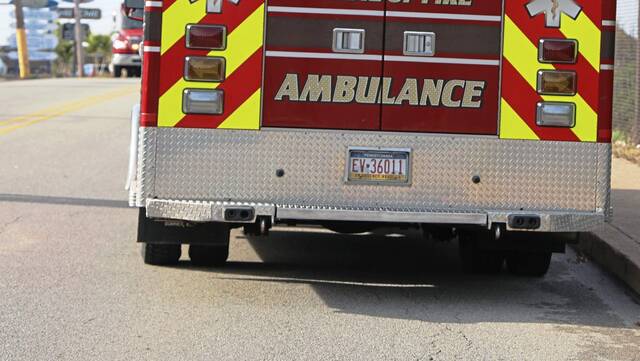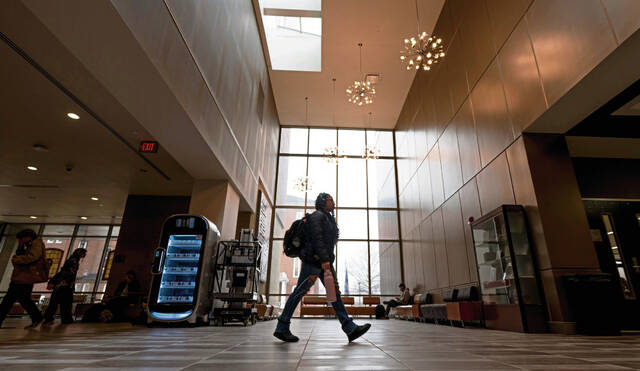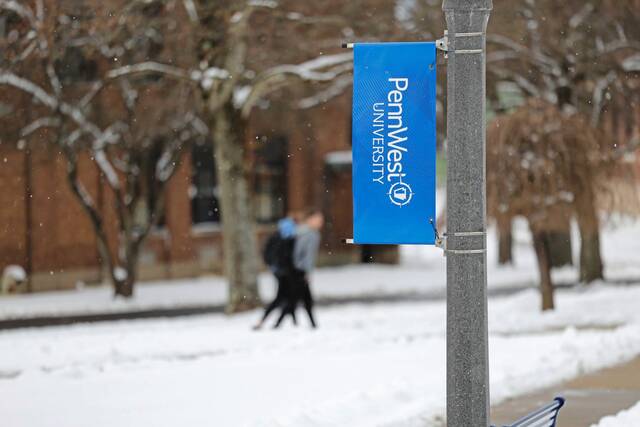The cancellation of Pennsylvania’s state exams has sparked an old debate: that of the validity and necessity of standardized testing in measuring student success.
The purpose of state exams, according to the state Department of Education, is to assess the progress of each school district — identifying weaknesses or unmet needs. The Pennsylvania System of School Assessment (PSSA), both its testing portion and demographic questionnaire, is a useful tool to politicians in determining where to allocate funding or resources.
The tests are also crucial for research purposes, said Cindy Walker, dean of the School of Education at Duquesne University. They provide an objective tool to measure progress, giving a “general overview” of how students are doing in a particular district.
But testing was canceled two weeks ago as covid-19 gained more traction in the state, amid school closures and Gov. Tom Wolf’s stay-at-home order — which has now been extended to all 67 counties.
As a researcher, Walker said missing a year of data collection shouldn’t make too much of a difference in the long run. All schools in the state will be in an equal situation. Researchers will just have to adjust the way they compare data in the future — comparing scores from two years apart to make up for the gap year.
“I don’t think it’s going to have any long-term effects,” Walker said.
When it comes to standardized tests, the greater loss will be the cancellation of SAT, ACT and other higher education entrance exams, Walker said.
Meanwhile, some district leaders see the cancellation as a welcome release from an annual tradition they had mostly found pointless.
“It offers no value in terms of being able to look at that assessment and make instructional decisions,” said Gennaro Piraino Jr., superintendent of Franklin Regional School District.
Piraino has long been an outspoken critic of state exams. He believes the data collected from PSSA isn’t timely enough, and it doesn’t properly measure what he feels is actually necessary for student success. Piraino said he has seen more effective measurement at the internal level, where tests can be individualized for every classroom, student and skill. If anything, he said, this move will save valuable resources needed during the pandemic.
“Our focus is really making sure we’re continuing instruction and getting students what they need,” Piraino said.
Canceling the tests, he said, “really isn’t that large of a detriment.”
Tim Scott, superintendent of Kiski Area School District, agreed that as end-of-year summative assessments, PSSA and Keystone Exams don’t help instructors gauge their students’ progress in real time. He compared the tests to an autopsy — there might be some helpful information gleaned, but “you’re not helping the patient.”
“What if the ramifications [to canceling] is that there really aren’t long-term ramifications?” Scott asked. “What if this lends itself to point out how superfluous these tests can be sometimes?”
For Scott, the greatest asset to state testing is the demographic data, used to identify issues of inequity or underperforming subgroups. But with all of the other concerns surrounding the closure of schools and the transition to online learning, state exams are the least of his concerns, Scott said.
“Missing that data for one year isn’t going to be terribly harmful,” he said.
For Walker, the disdain for formalized state testing is due to a lack of information. She said the researchers designing the tests simply have different goals than teachers at the district level. They’re looking for the “big picture.” Still, missing a year shouldn’t hurt their analyses, she said.
“The analysis doesn’t need to be annual to be valuable,” she said, and the state will find other ways to hold districts accountable. “It’s just one bit of information.”








